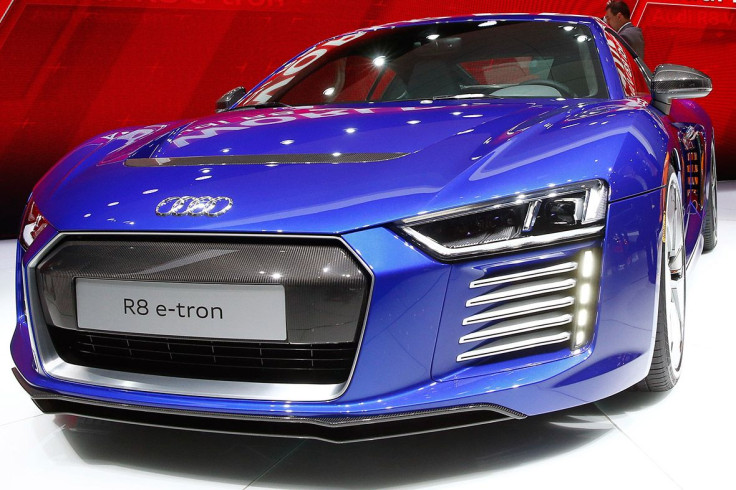Luxury Electric Car Under Consideration At Mercedes-Benz Says CEO At Geneva Auto Show; Electric 2017 Audi R8 Premieres

German automakers aren’t sitting idle as Tesla Motors tries to dominate the growing market for battery-powered luxury cars. Speaking at the Geneva Motor Show, Daimler CEO Dieter Zetsche said the California maker of the Tesla Model S sedan is proving that electric cars have a viable niche among wealthy consumers.
Electric cars, he said, have been hampered by the fact that most of the vehicles in the market have been in lower-cost segments. But, “as proven by Tesla, there can be a market at the other side of the range as well,” Zetsche told Reuters on Wednesday on the floor of the auto show. “If that is a possibility, we are investigating.”
If Tesla is proving that there’s a nascent but growing market for electric cars from wealthy consumers then it’s soon going to find an increasingly crowded market coming from cars made by Audi, BMW, Lexus and Daimler’s Mercedes-Benz.
Not far from where Zetsche said his company is investigating the viability of a future all-electric Mercedes-Benz luxury car, Audi was showing off its 2016 R8 E-Tron, a 456 horsepower battery-powered sports car that will go on sale in Europe this year. The price has yet to be confirmed, but it’s likely to cost considerably more than a top-end Model S, much like Mercedes-Benz’s SLS AMG E-Cell, a limited production electric version of the ultra-luxury sports coupe released in 2013 with a half-million-dollar price tag. With a range of 280 miles, the R8 E-Tron is one of the first luxury electric cars to hit the market that targets the kind of buyers that bought about 33,600 Model S sedans last year.
Tesla CEO Elon Musk has said he welcomes rivals into the luxury electric car segment and claims the market will be large enough to easily support more than one luxury electric car maker. Musk wants to make an electric car that more people can afford, and Tesla is scheduled to release a $35,000 Model 3 by 2017 that the company says will have industry-leading range for small electric cars.
Daimler, which owns Mercedes-Benz, rolled out its own sub-$35,000 electric car last year that uses a Tesla power train. But like its rivals the Nissan Leaf and the BMW i3, the Mercedes B-Class Electric Drive is lacking in range at 87 miles per charge. Mercedes-Benz sold only 776 B-Class vehicles last year. By comparison, the lower-priced Nissan Leaf, which has a comparable range using its own power train, sold 82,602 units last year.
Nissan and Tesla are showing that the electric vehicle market is divided between wealthy early adopters who love the Tesla Model S for its innovative features and sharp design language, and eco-conscious urban consumers who are comfortable with the Nissan Leaf’s 80-mile range. If both of these segments grow like Musk and Nissan CEO Carlos Ghosn envision, then consumers will encounter more choices in the year to come. Mercedes-Benz and Audi appear to be the current front-runners in taking on Tesla at the luxury end.
© Copyright IBTimes 2024. All rights reserved.




















